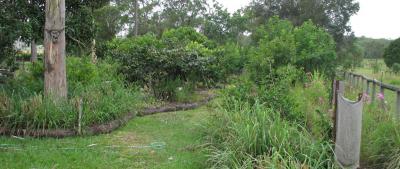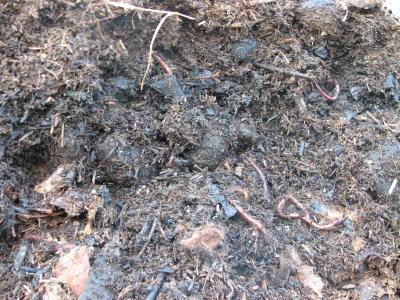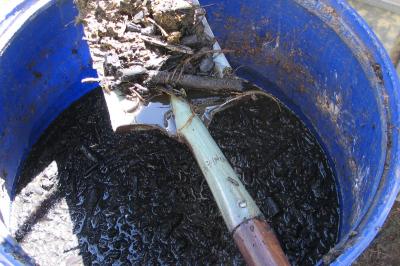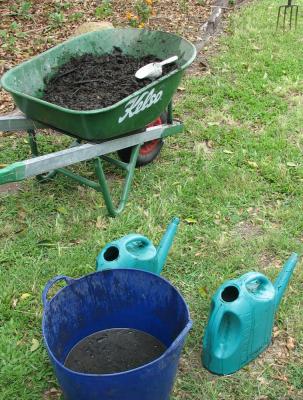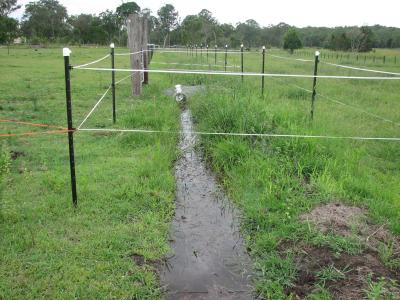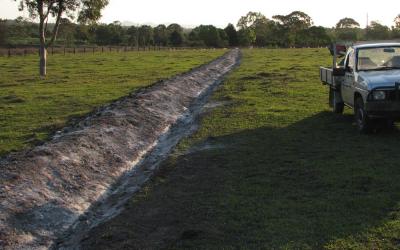Permaculture and Biochar Development - Queensland, Australia
- Log in to post comments
Permaculture and Biochar Development - Queensland, Australia
Barry Batchelor, Permaculture Designer, December 6, 2007
Hi All
First I would like to introduce myself, My name is Barry Batchelor and I'm a Permaculture Designer living on a small scale developing sustainable farm 30km North of Brisbane Australia. I'm one of a handful of Permaculturists who are using or testing Biochar in their food systems in Australia.
Permaculture - http://en.wikipedia.org/wiki/Permaculture
While my talent is not the written word, I hope to show off some of the work I have been doing here, this is where my talent is and where my time is spent.
Note: most of the photo's are 200-400k
http://www.biochar.net/image_uploads/biochar/food_forest.jpg
http://www.biochar.net/image_uploads/biochar/polyculture.jpg
This area is the main focus of my permaculture development and is classed as Zone 1 and 2 in permaculture terms. The 2000m2 area is developed as a polyculture food producing environment, it contains many fruit and nut trees, vegi gardens and many different layers of food. This area is 100% organic and will produce most of our food in years to come, it was started 4 years ago from a compacted soil horse paddock. I make about 10000-15000 lt of compost each year in the gardens by hand. I have been adding used coffee waste to this area for years, I add between 50-100lt per week which I get from a local organic coffee shop, while I'm not sure if the charred carbon elements contained in coffee grounds break down or not, it has been an excellent additive to my soils and it's what got me interested in Biochar.
I now produce most of my char onsite here with a 44 gallon drum, using smaller chunks of dried timber, most of the larger logs are added to the food forest as edging or for slowing water run off. I'm always getting my hands on timber from local's around here, I'm also trying to setup a deal with out local country fire crew to let me access timber or char from controlled burn off's.
http://www.biochar.net/image_uploads/biochar/compost.jpg
One of the most impressive things I have seen in my composts is how worms love the added biochar, in a 400lt bin I have noticed up to 80% of the worms are focused in the layers which contain the char, I feel worms play a massive roll in moving char about. As I also char beef bones I'm sure the added calcium attracts them. I have noticed this over the last 4 compost batches I have made.
http://www.biochar.net/image_uploads/biochar/biochar_brew1.jpg
http://www.biochar.net/image_uploads/biochar/biochar_brew2.jpg
I have now started making liquid brew's which to an organic gardener's nose smells great. This batch was brewed for about two weeks with many different inputs including worm farm liquid waste. The char and bio mud was drained out and added to my vegi gardens and the remaining liquid was mixed 50/50 with water and added to my citrus trees, The potash from the char making process, plus fine amounts of char and added fresh humus which slipped past my filter looked like a great root feed for them.
http://www.biochar.net/image_uploads/biochar/vegi_garden2.jpg
http://www.biochar.net/image_uploads/biochar/vegi_garden1.jpg
This is fresh biochar brew and biochar compost which is added on top of my vegi garden soil, the soil is already pretty good with heaps of added humus and a pretty balanced mineral level, I have noticed more worm and bug activity in the soil since adding the char, I have also noticed a better water holding capacity, all soil here is covered with a thick layer of mulch to reduce sun damage and dry out.
http://www.biochar.net/image_uploads/biochar/western_tree_block.jpg
This is a new area of native trees which were planted out with a compost and biochar mix added into the drilled holes, growth has been out standing so far but at this stage I feel that is to do with the tree guard system from http://www.treesforearth.com.au/ I'll let the website explain the use of pink, but I know they have worked well here compared to other areas planted without the use of them. This photo shows about three months growth from small tube stock. I'm sure the 150mm of rain a week after planting had nothing to do with the amount of growth. ;-)
http://www.biochar.net/image_uploads/biochar/biochar_swale.jpg
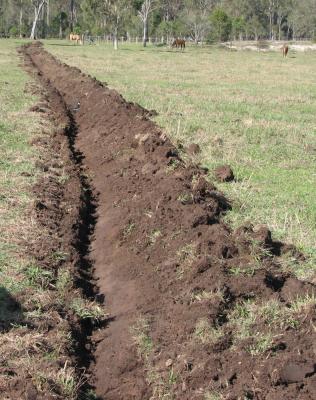
http://www.biochar.net/image_uploads/biochar/biochar_swale2.jpg
http://www.biochar.net/image_uploads/biochar/biochar_swale3.jpg
This is a two month old 250m long swale which was developed to slow and catch water and create a feed belt for our three horses, I added a 44 gallon drum of Biochar to the downward bank along the entire length and legume live stock fodder trees have been seeded into this, I have been impressed with the growth on the bank of the stabilising grasses which I also seeded. The swale fills and over flows with just 15mm of rain, I noted last week a 36mm heavy rain event increased our dam level by over 35cm because of the swales which makes all the work making them worth while. Please note swales are built on contour and do not flow they are design to fill up and soak into the soil, water that over flows them spills into lower swales or from dam to dam, Permaculture teaches swale design and P.A Yeoman uses these techniques in his Keyline teachings. http://www.keyline.com.au/
For a more in-depth look at my swale and the construction process and costs goto http://www.biochar.net/swale/swale.htm (please note this site/link will break if you use firefox)
Well that's my show and tell for 2007 and as I do enjoy most of the informative posts I'll keep reading and posting when I have something to add from my non science simple farming background :-)
Regards
Barry Batchelor
Permaculture Designer
www.biochar.net

